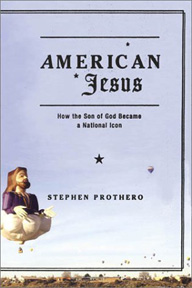 This article was picked up by Worship.com here.
This article was picked up by Worship.com here.
In his recent album Continuum, John Mayer sings about “Belief.” In addition to being one of the best songs on the CD, this song contains a remarkable insight, both as a philosophical reflection and as a pop lyric. Mayer sings: “Everyone believes how it ought to be.” The song falls between two other songs in the album that struggle with our simultaneous inability and desire to change ourselves and the world. Mayer confesses that he can’t “trust himself with loving you.” His recognition of the plethora of beliefs is, perhaps, the source of his inability to trust himself. How can he truly love someone else, when he is unsure of what to believe about Love and life?
Speculation on Mayer’s love life is far from my aim. The point is simply that recognizing the plurality of beliefs in the world often summons one of two responses—passive retreat or combative advance. Mayer takes the former path. In “Belief” he points out that: “What puts the folded flag inside his mother’s hand? Belief can.” A likely allusion to the clash of worldviews that often results in war, Mayer advocates that we not fight for belief.
Others would disagree with his conclusion. It is precisely because there are so many beliefs that all the wrong ones should be stamped out. Truth must reign, whatever the cost. Suicide bombers, angry street preachers, religious, theocratic government.
Both the passive and aggressive responses are scary. Unflinching dogmatism divorced from love and understanding is a “heavy sword.” However, abandoning the centrality and exclusivity of one belief also poses problems. If indeed “everyone believes the way it should be,” then believing that there is only one true belief is not any less a belief than believing that there are many valid beliefs. Everyone believes something about truth, plural or singular, and no one can express an objective judgment on what should or should not be.
If everyone believes the way it should be, atheism or theism, Islam or Christianity, then someone is believing wrongly. A postmodern glaze will not dull the differences between the major world religions. Muslims that I have talked to would be incredibly offended if I told them that they really believe the same thing as Christians, that all paths lead to the same God. It would seem that thoughtful inquiry into the nature of God would be a profitable way forward. But, as Augustine said, in the end faith seeks understanding. Belief in believing that there is something that determines what is good, beautiful and true will bring understanding.
However, absolute certainty is not the goal of belief. As Augustine averred, it is more important to love the right objects than to know them with certainty. In order to know what we should believe, perhaps we should consider what is most worthy of complete devotion and affection…

